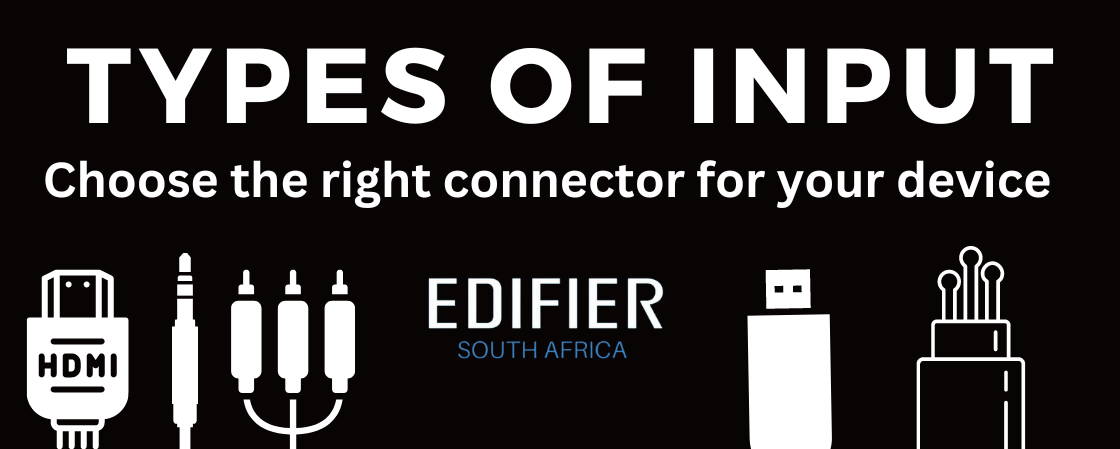
Choosing the Right Audio Connectors for Your Edifier Speakers: A Guide
Speakers are an essential component of any audio setup, allowing us to enjoy our favorite music, movies, and games with immersive sound quality. When it comes to connecting your Edifier speakers to your devices, choosing the right audio connectors is crucial. With a plethora of options available, it's important to understand which type of connector fulfills your specific needs. In this blog, we will explore the various types of audio connectors and help you determine which one is the perfect fit for your Edifier speakers.
3.5mm Aux
RCA connectors are widely used in home audio systems, TVs, DVD players, and gaming consoles. These connectors consist of red and white cables, with the red one carrying the right audio channel and the white one carrying the left audio channel. Edifier speakers equipped with RCA inputs can seamlessly connect to these devices, ensuring a balanced and immersive audio experience.
Pros:
-Widely used in home audio systems, TVs, DVD players, and gaming consoles.
-Provides separate connections for left and right audio channels, ensuring balanced audio reproduction.
-Compatible with a wide range of devices and easy to find adapters for different connector types.
-Offers a reliable and cost-effective audio connection.
Cons:
-Analog connection susceptible to noise and interference.
-Limited to stereo audio and may not support surround sound formats.
-Requires multiple cables for connecting both left and right channels.
Optical connectors transmit audio signals using light pulses. These connectors are commonly found in home theater systems, soundbars, and TVs. If your Edifier speakers feature an optical input, you can connect them to devices such as gaming consoles, Blu-ray players, and high-end audio systems. The optical connection ensures a clean and noise-free signal transmission, delivering pristine audio quality.
Pros:
-Delivers high-quality digital audio transmission, ideal for home theater systems and audio enthusiasts.
-Provides a clean and noise-free signal transfer.
-Supports surround sound formats like Dolby Digital and DTS.
-Can transmit audio over longer distances compared to analog connections.
Cons:
-Requires devices with optical outputs, such as TVs, gaming consoles, and some audio systems.
-May not support certain high-resolution audio formats.
USB
USB connectors have become increasingly popular in the audio world. They offer digital audio transmission and are commonly found on computers, laptops, and some modern audio equipment. Connecting your Edifier speakers via USB provides a direct digital audio path, bypassing the need for a separate digital-to-analog converter (DAC). This results in superior audio quality and better control over audio settings.
Pros:
-Provides a direct digital audio path, ensuring high-quality sound without the need for a separate DAC.
-Supports high-resolution audio formats and delivers superior audio performance.
-Universally available on computers, laptops, and some modern audio equipment.
-Enables easy plug-and-play functionality.
Cons:
-Limited compatibility with devices lacking USB ports.
-May require specific drivers or software for proper functionality.
-USB cables have length limitations and may not support longer distances.
HDMI Connector
While there are various connector options available, one versatile and feature-rich option to consider is the HDMI connector.
Pros:
-Transmits both high-definition video and high-quality audio through a single cable.
-Supports surround sound formats like Dolby TrueHD and DTS-HD Master Audio.
-Allows for seamless integration with TVs, Blu-ray players, gaming consoles, and home theater systems.
-Provides advanced features like Audio Return Channel (ARC) and HDMI-CEC for enhanced functionality.
Cons:
-HDMI connectivity may not be available on older devices.
-Cables can be relatively expensive compared to other connector types.
-Some older HDMI versions may not support the latest audio formats.
